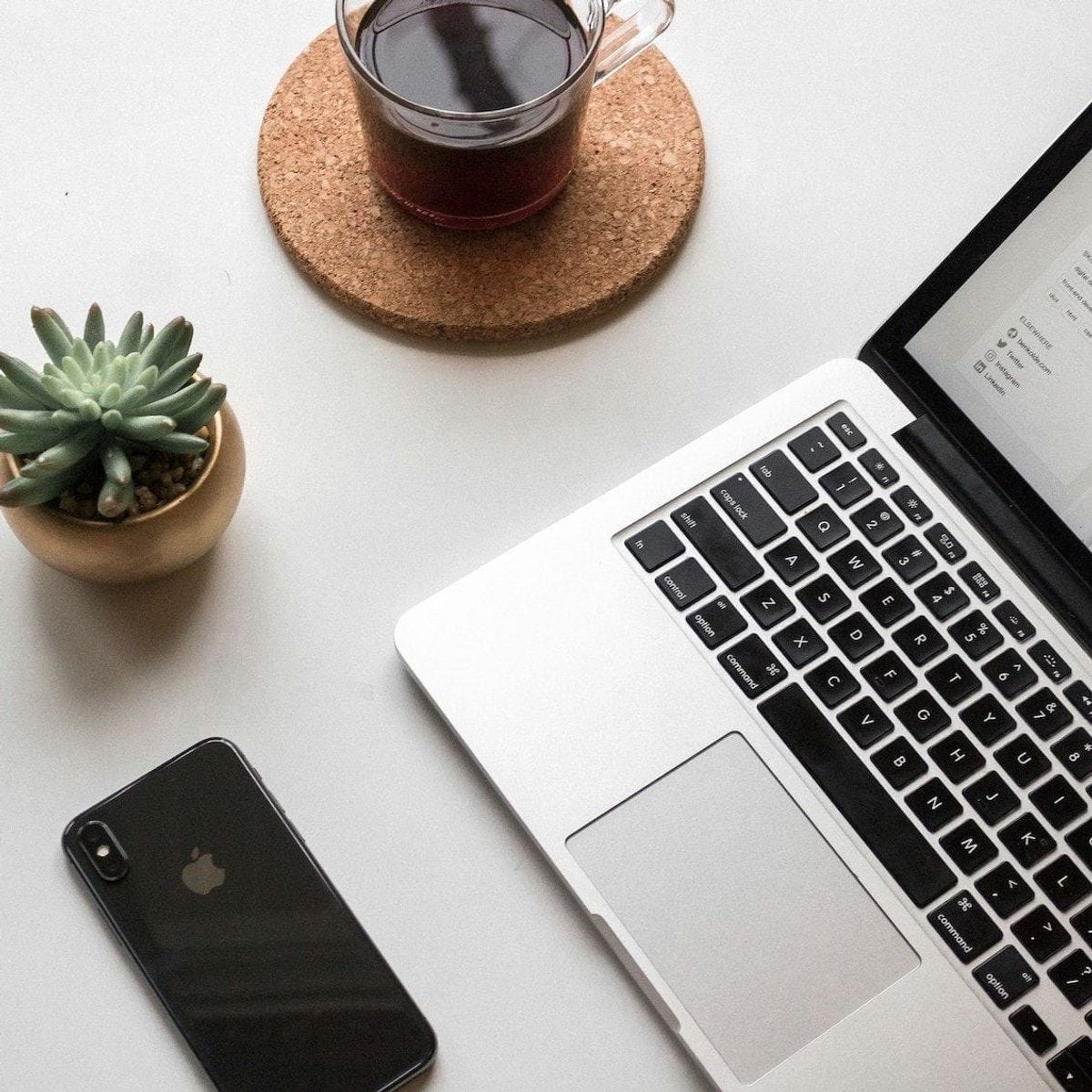Email Template Thank You: Crafting the Perfect Note

Sending a thank-you email may seem like a small thing, but it can have a lasting impact and help both personal and professional relationships.
Quick Summary
Sending a thank-you email is a simple yet powerful gesture that can significantly enhance personal and professional relationships. By expressing genuine gratitude, individuals can foster connection, build trust, and set the stage for future opportunities. Key elements include a clear subject line, personalization, and professionalism. Thank you emails not only leave a positive impression but also encourage ongoing engagement, making them essential in various contexts such as job interviews and c
Expressing sincere gratitude in these emails can strengthen relationships, encourage future engagement, and foster a sense of belonging among those involved.
Whether after a job interview, a meeting, or a follow-up with clients, saying thank you can leave a good impression and set up future opportunities.
Ready to Grow Your Business?
Get a custom strategy tailored to your goals.
This post covers different scenarios for sending a thank-you email, from job interviews to customer thank-you notes.
Remember, while this post offers some ideas, it’s essential to conduct your own research to tailor any strategies or tips to your needs.
What is a Thank You Email?
Definition and Purpose
A thank you email is a type of email sent to express gratitude and appreciation for a specific action, event, or interaction.
Whether it’s after a job interview, a meeting, or receiving customer feedback, a thank you email may acknowledge the recipient’s efforts and show appreciation for their time and consideration.
The primary purpose of a thank you email is to build a positive relationship and leave a lasting impression.
Importance of Sending a Thank You Email
Sending a thank you email can be crucial for several reasons.
Firstly, it may help to build trust and establish a positive relationship with the recipient. By showing that you value their time and efforts, you may differentiate yourself from others and demonstrate your professionalism.
Additionally, a well-crafted thank you email can increase the chances of a positive outcome, whether it’s securing a job after an interview or fostering loyalty with a customer.
In the professional world, a simple thank you can go a long way in opening doors for future opportunities.
Why Send a Thank You Email?
A thank you email, as a personal note, can express gratitude, but it also may have many other benefits, such as professionalism, giving a good impression, building relationships, and opening doors for future opportunities.
By showing appreciation, you can stand out in the professional world, keep connections, and create a sense of mutual respect.
Why Send a Thank You Email:
- Professionalism: It’s often good business etiquette and earns respect.
- Good Impression: Gratitude can leave a good impression and make people think more of you.
- Relationships: It can build relationships with clients, team members, or interviewers.
- Future Opportunities: It can open doors for new projects, collaborations, or partnerships.
- Follow-Ups: It can be a great opportunity to reconnect and stay at the top of your mind.
- Acknowledging Personal Favor: It shows appreciation for personal assistance or support.
What to Include in a Thank You Email

A good thank you email should have a few key components to make it clear and professional.
These are:
- Clear Subject: Consider using a clear subject line, such as “Thank You for Your Time” or “Thank You for the Interview,”.
- Personalization: Details about the meeting, job interview, or the recipient’s specific contribution, and mention the company name if applicable.
- Brief Body: Keep it short, to the point, and relevant.
- Professional Email Signature: Please ensure you include a professional email signature with your name, job title, and contact details.
- Polite Closing: Use a polite closing such as 'best regards' to end the email on a professional note.
Crafting the Perfect Thank You Email

Use a Clear Subject Line
A clear subject line can be essential for a thank you email. It should be brief, concise, and clearly state the purpose of the email.
A good subject line grabs the recipient’s attention, increases the open rate, and sets the tone for the rest of the email.
Here are some tips for crafting a clear subject line:
Ready to Grow Your Business?
Get a custom strategy tailored to your goals.
- Keep it short and concise: Aim for a subject line that is easy to read at a glance.
- Use keywords that relate to the email content: This helps the recipient understand the email’s purpose immediately.
- Avoid using spammy words or phrases: Words like “urgent” or “free” can trigger spam filters.
- Use a personal touch, such as the recipient’s name: Personalization can make your email stand out.
- Make sure it is clear and easy to understand: The subject line should leave no doubt about the email’s content.
For example, a good subject line for a thank you email after a job interview could be “Thank you for the opportunity to interview for ”.
This subject line is clear, concise, and directly related to the content of the email, making it more likely to be opened and read.
Thank You Email Templates
A well-crafted email subject line can be crucial for ensuring your thank you email gets opened and read.
Thank You After a Job Interview
Subject: Thank You for the Interview -
Dear ,
Thank you for considering me for the position at . It was great learning more about the team and the job.
I think my experience in would be an asset to the team.
End your email with a polite closing such as 'warm regards' to leave a positive impression.
This one may leave a good impression on the hiring manager and show you’re interested in the role.
Thank You for a Meeting
Subject: Thank You for the Meeting -
Hi ,
Thanks for taking the time to chat about with . Your thoughts on were really helpful, and I’ll implement some of the ideas we discussed. Let me know if there’s anything else you’d like me to follow up on.
Using specific details from the meeting can make it more personal.
Thank You for Email for Customer Feedback
Subject: Thank You for Your Feedback
Dear ,
Thanks for the feedback on your recent experience with .
We express our sincere gratitude for your input, and we’ll use it to improve our services and deliver the best possible experience. We look forward to serving you.
Thanks,
Ready to Grow Your Business?
Get a custom strategy tailored to your goals.
This thank you email can acknowledge the client’s contribution and can help build trust and long-term relationships.
Thank You Email for Job Rejection
Subject: Expressing Gratitude for the Opportunity -
Dear ,
Thanks for letting me know about the decision on the role. I’m disappointed but grateful for the interview and learning more about . The experience was great, and I hope to work with you in the future.
Ensure you include a professional email signature with your name, job title, and contact details.
This one may show Professionalism and can leave a good impression even after a job rejection, which may lead to future opportunities.
Thank You for the Networking Event
Subject: Thank You for
Hi ,
It was great meeting you at . I enjoyed our chat about . Let’s stay in touch for future events or projects. Connect with me on .
Including specific details from the event and social media links can make a connection and leave a good impression. End your email with a polite closing such as 'best regards' to leave a positive impression.
Team Member Appreciation Email
Subject: Thanks for
Dear ,
I just wanted to say thanks for . Your work was key to our achieving our goals, and we appreciate it.
End your email with a polite closing such as 'warm regards' to leave a positive impression.
This one can boost morale and team spirit.
More Thank You Email Tips
- Proofread for Grammar and Spelling: Check for grammar and spelling errors to look professional.
- Clear Subject Line: A clear subject line so the recipient knows what the email is about.
- Be Personal: Including specific details can make it more memorable.
- Not Too Formal: While professional, don’t sound too corporate. Just be genuine.
- Include a Professional Email Signature: A professional email signature with your name, contact details, and designation ensures the recipient has all necessary information and maintains a formal tone.
“Thank you emails” can be a powerful way to express gratitude after a job interview, a networking event, or a meeting.
By keeping it short, being personal, and having a clear subject line, a thank you email can build relationships and open doors for future opportunities.
Whether to make new connections after a phone interview or to a loyal customer, remember that a good thank you note can make a lasting impression and impact personal and professional growth.
Ready to Grow Your Business?
Get a custom strategy tailored to your goals.
Related Resources
Calculators
Pricing Guides
Key Terms
Marketing strategy that promotes brands, products, or services through hosted or sponsored in-person or virtual events.
Attendee AcquisitionThe marketing strategies and tactics used to attract and convert target audiences into event registrants.
Event Experience DesignHolistic approach to creating memorable, purposeful attendee journeys at events.
Attendee Acquisition StrategyPlanned approach to attracting and registering target audiences for events.
Post-Event StrategyPlanned follow-up activities that extend event value and drive business outcomes.
Related Articles

Thank You Letter for After a Job Interview
Planning a successful job search can often hinge on the seemingly small details that leave a lasting impression. One of these details is the thank you letter after the job interview. This simple g

Personal Branding Values: Establishing Your Brand's Identity
In today's market, personal branding values can be a defining element of a brand's identity. Whether developing a business or growing as an individual, understanding personal branding values and t

PR Partnership: How to Build a Strong PR Collaboration
A PR partnership can bring substantial value to brands looking to grow their reach and build a strong brand presence. By collaborating with the right PR partner, organizations can benefit from inc